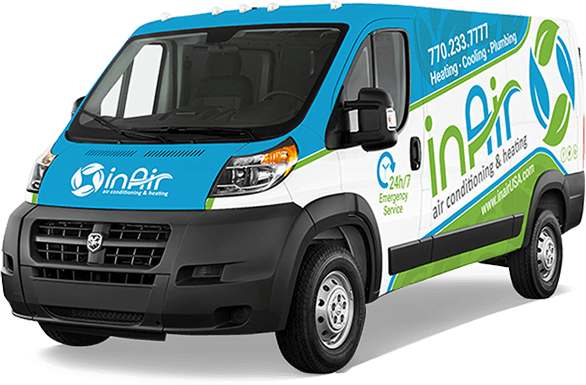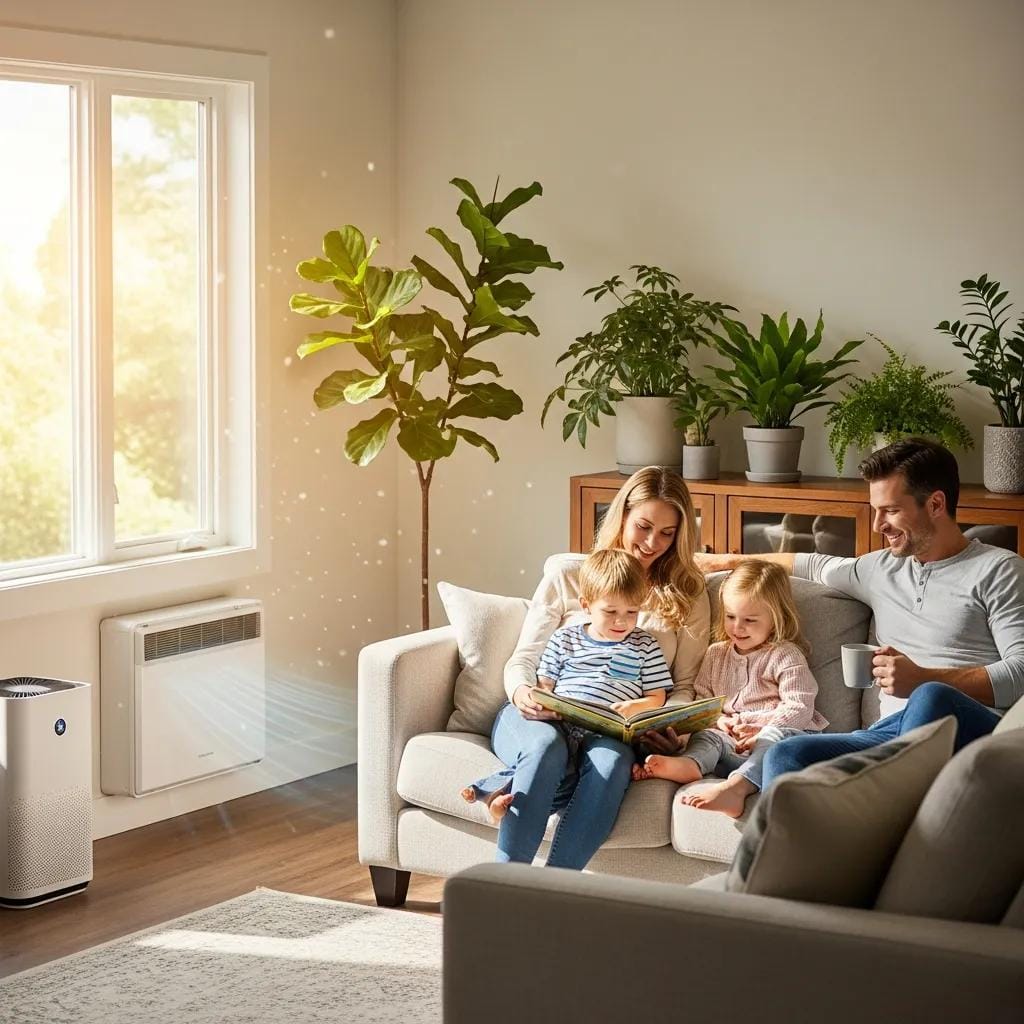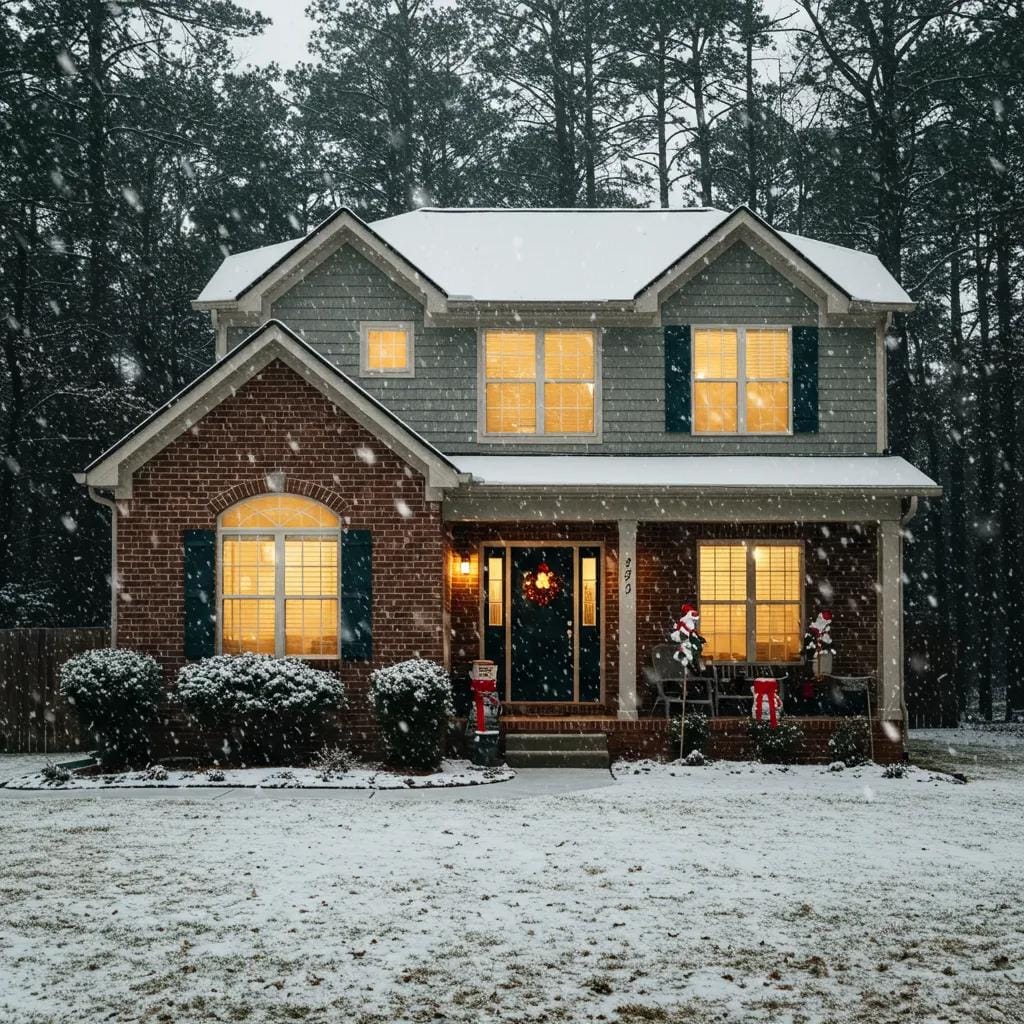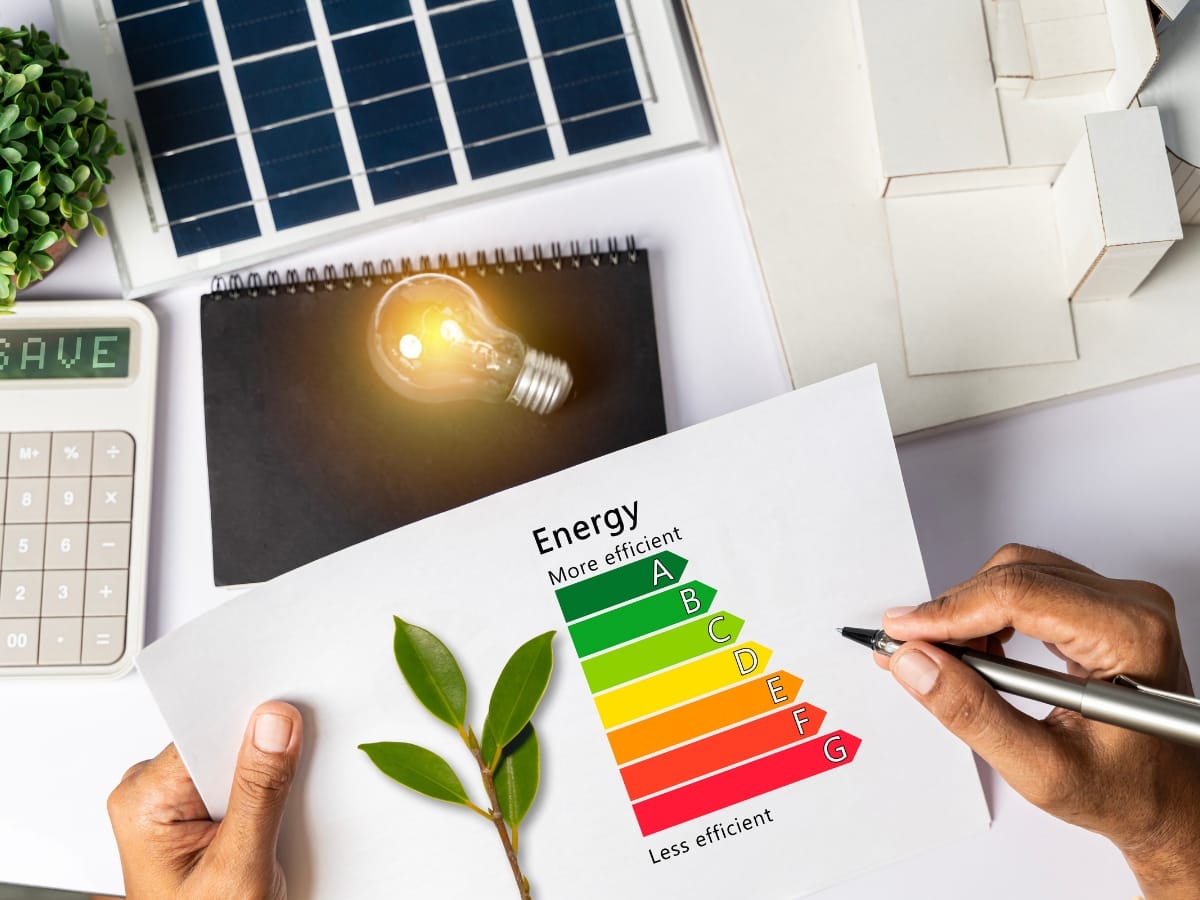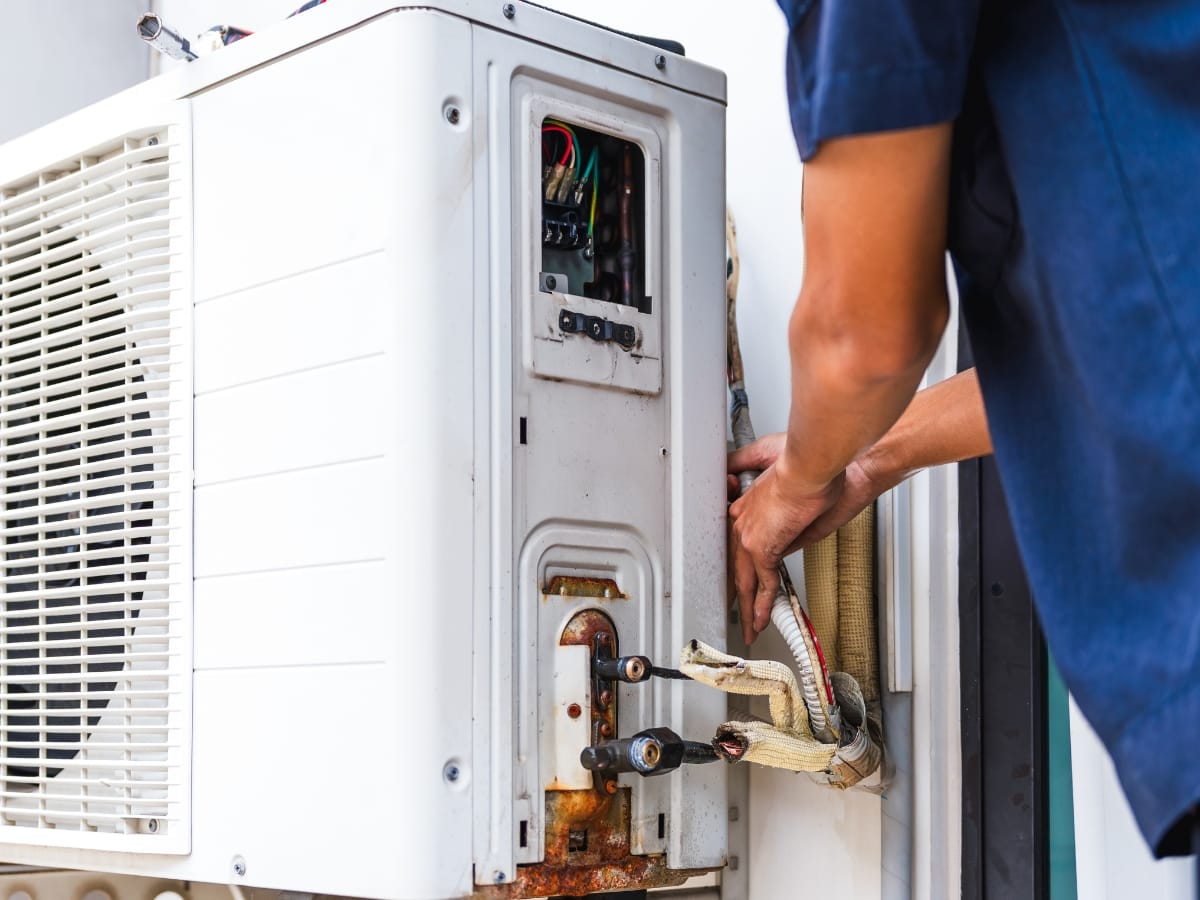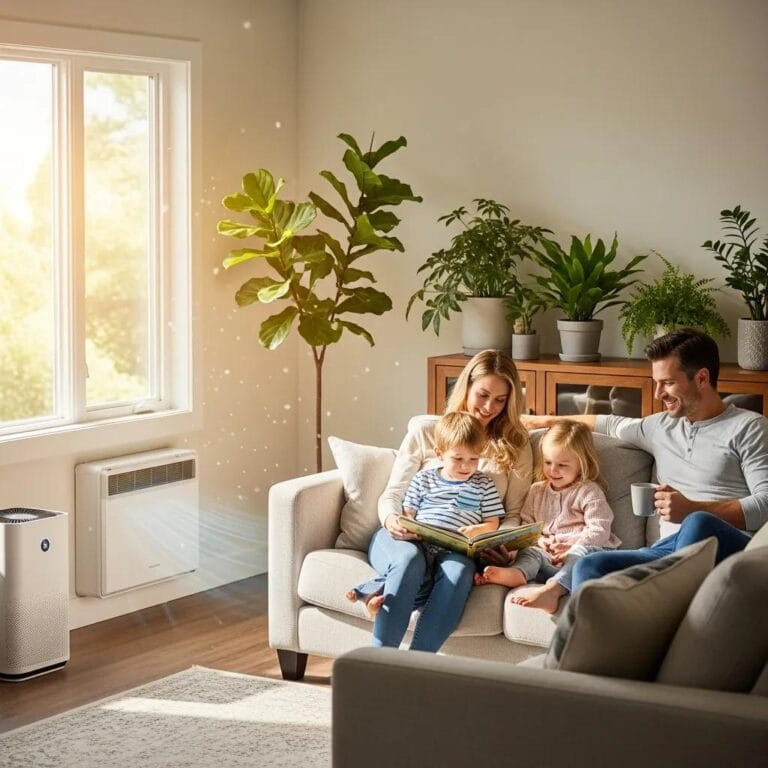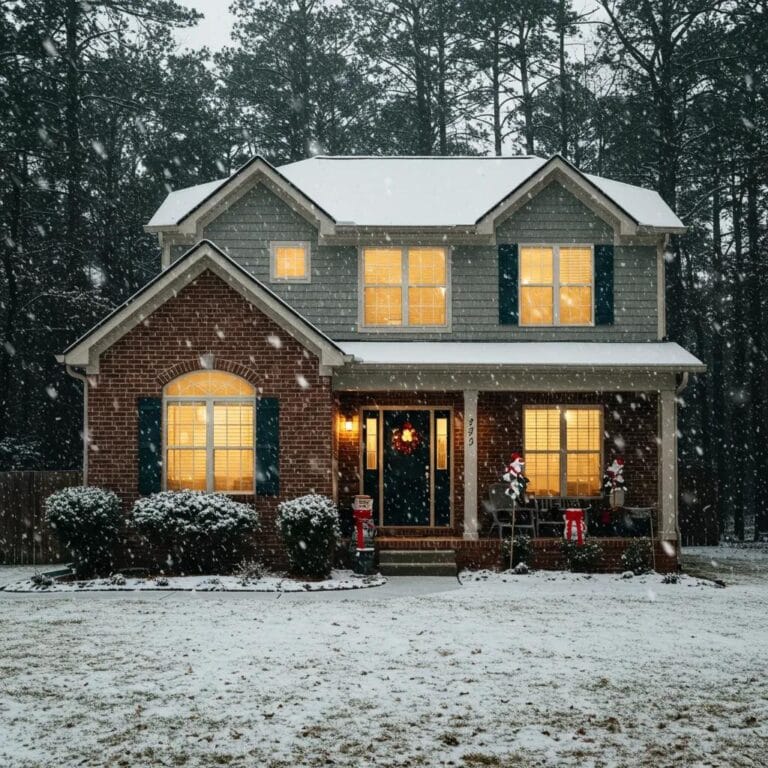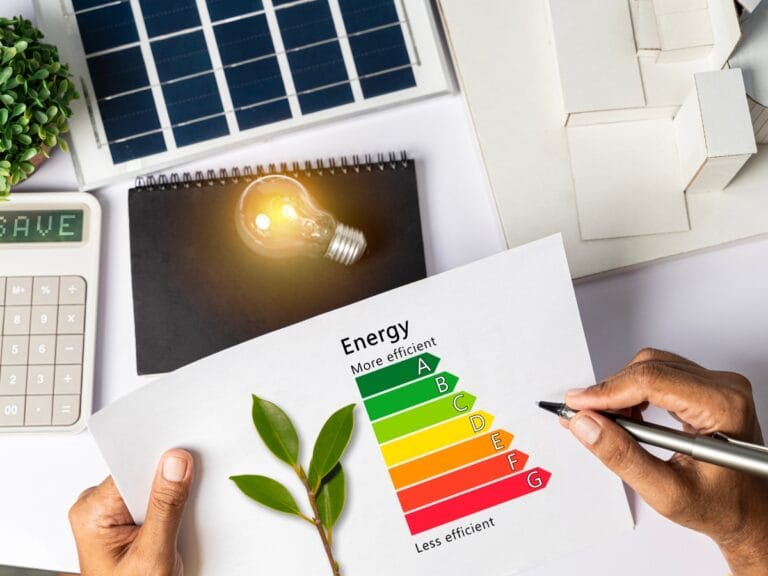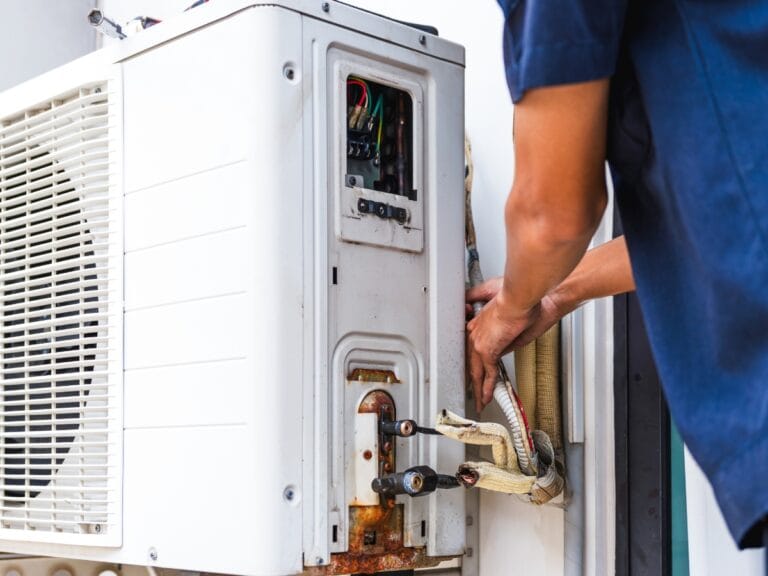Is your heatpump not performing like it used to? Many homeowners in the Atlanta area overlook early warning signs that something is wrong.
In this post, we’ll discuss common signs of heatpump issues and malfunctions, the importance of timely inspections, and maintenancetips to help you avoid expensive heatpump repairs.
By understanding these issues, you’ll be better prepared to keep your home comfortable and efficiently use your system, ultimately saving on heating costs. Don’t let small problems turn into bigger headaches—read on to find out how you can keep your system running smoothly.
Dealing with Heat Pump Issues? Here’s What You Need to Know
Warning Signs of HeatPump Issues
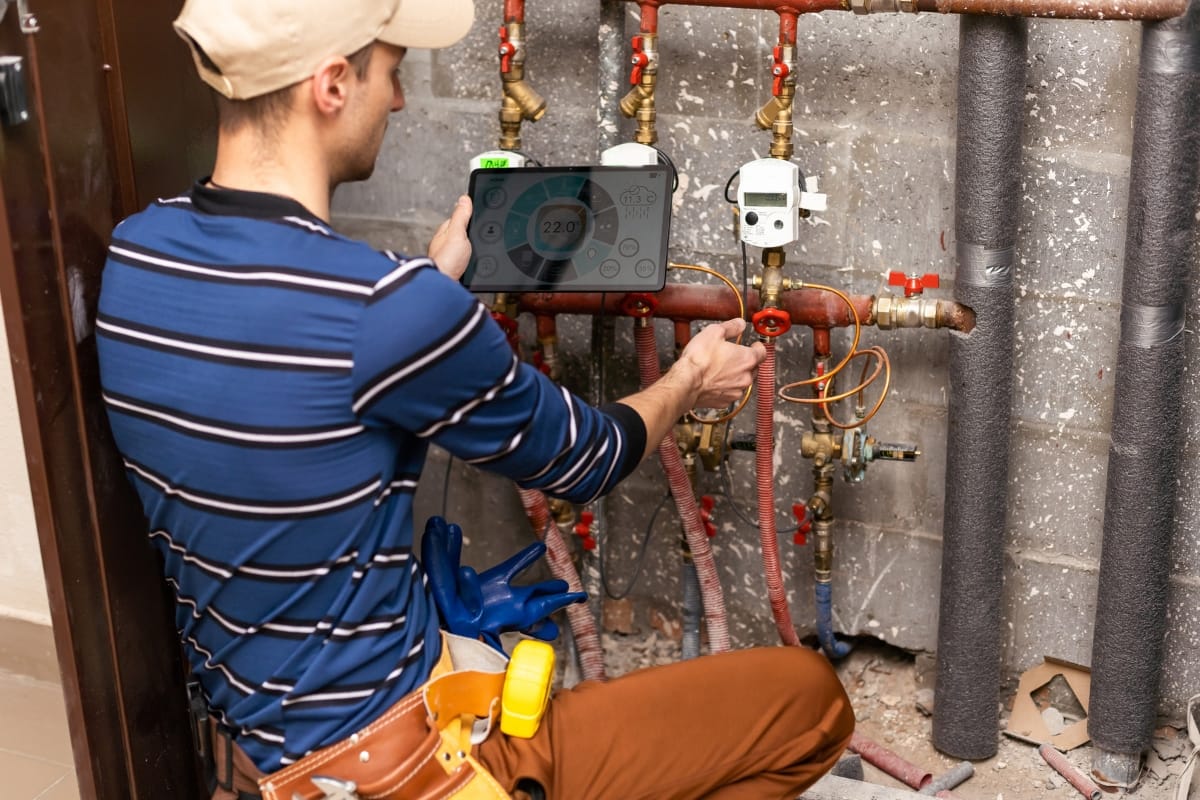
If your heatpump isn’t turning on, isn’t providing enough heat, or isn’t cooling effectively, these are clear signs that you need to pay attention to.
You might notice your unit running continuously, making unusual noises, or giving off strange odors. Additionally, a rise in your energy costs could indicate issues with the reversing valve or compressor.
Understanding these signs can help you tackle any problems before they escalate.
Your HeatPump Won’t Turn On
If your heatpump won’t turn on, it can be frustrating, especially when you count on it for air conditioning or heating. Check your electricity supply first; a blown fuse or tripped breaker might be the culprit.
Regular maintenance is vital to ensure functionality, so if your system is unresponsive, consider scheduling a service to prevent further damage.
In cold weather, ice build-up on your outside unit can also prevent your heatpump from working. If you notice ice forming, it may indicate that your unit lacks proper airflow or has a refrigerant issue.
Addressing these problems promptly can save you energy costs in the long run and keep your home cozy when you need it most.
Your HeatPump Is Not Providing Sufficient Heat
If your heatpump is not providing sufficient heat, check for any unusual noises that may indicate a malfunction. A broken valve or blocked duct could be impacting the airflow, causing your system to struggle.
You won’t just feel uncomfortable; you’ll also notice that your energy bills might increase because the unit has to work harder to maintain the temperature.
Another thing to consider is the circuit breaker. If it has tripped, this might disable your heatpump, leading to inadequate heating.
Regularly inspecting your ducts and ensuring they are free from obstructions can also help the system perform better. Addressing these issues quickly not only improves comfort but also extends the life of your heatpump.
Your HeatPump Fails to Cool Effectively
If your heatpump is struggling to cool, there could be several reasons behind it. A faulty capacitor may disrupt power to your system, causing efficiency issues.
During troubleshooting, check your smart thermostat settings to ensure your unit is set to cool properly and verify that the evaporator coils are clean and free from debris that can impede airflow.
Another common pitfall is the impact on indoor air quality. If your heatpump isn’t effectively cooling your home, you might notice increased humidity levels or stagnant air.
Make it a habit to inspect and replace your air filters regularly to help maintain optimal performance, reducing strain on the system and promoting a comfortable living space.
| Warning Signs | Possible Causes | Recommended Actions |
|---|---|---|
| Heat Pump Fails to Cool | Faulty capacitor, dirty evaporator coils | Check settings on smart thermostat, clean coils |
| Poor Indoor Air Quality | Clogged air filters, humidity issues | Regularly replace air filters, use dehumidifiers |
Your HeatPump Runs Continuously
If your heatpump runs continuously, it might not be functioning as efficiently as it should. This can happen due to several issues, including a malfunctioning thermostat or a problem with the heat exchanger.
Additionally, a clogged air filter or debris around your outdoor unit can restrict airflow and force your heatpump to work overtime, raising your energy bills and wearing out your system faster.
Keep an eye on the refrigerant levels in your heatpump, as low refrigerant can also lead to constant operation. If you find that your furnace seems to be running non-stop, it’s time to investigate the root cause.
Addressing these concerns quickly can enhance efficiency and prolong the lifespan of your unit, ensuring your home remains comfortable no matter the season:
- Check thermostat settings and calibrate if necessary.
- Inspect the heat exchanger for signs of wear or damage.
- Ensure outdoor units are clear of debris for proper airflow.
- Monitor refrigerant levels and schedule a refill if low.
- Regularly change filters to maintain optimal performance.
Unusual Noises or Strange Odors Emanate From Your HeatPump
If you notice unusual noises or strange odors coming from your heatpump, it’s important to address them quickly.
Sounds like grinding or hissing could point to a problem with the air handler or an issue with the condenser, which can disrupt heat transfer. These issues might also indicate a need for calibration to ensure everything runs smoothly and efficiently, helping maintain a comfortable home.
Strange odors can also signal underlying issues with your system. For example, a musty smell might suggest mold growth in the ductwork or filters, while burning odors could indicate electrical issues or overheating components.
These problems can affect the liquidrefrigerant flow and impact overall performance, so don’t ignore these signs; take action to keep your heatpump running effectively.
Increased Energy Costs Linked to Your HeatPump
If you’ve noticed a spike in your energy costs, it might be time to take a closer look at your heatpump. This increase can be linked to various issues, such as mold growth within your system, which not only affects efficiency but can also create unpleasant odors.
Additionally, frost build-up on the unit can signal underlying problems, making your heatpump work harder and shortening its life expectancy.
Another common culprit behind rising energy bills is a blown fuse or malfunctioning components. When your heatpump is struggling to maintain a comfortable temperature, it has to work overtime, leading to higher energyconsumption.
Keeping an eye on these signs can help you address the root causes early, ultimately saving you money and ensuring your system runs smoothly.
You’ve noticed the warning signs, but what comes next can tell you everything. Let’s look at the common signs of heatpump malfunctions that you should not ignore.
Common Signs of HeatPump Malfunctions
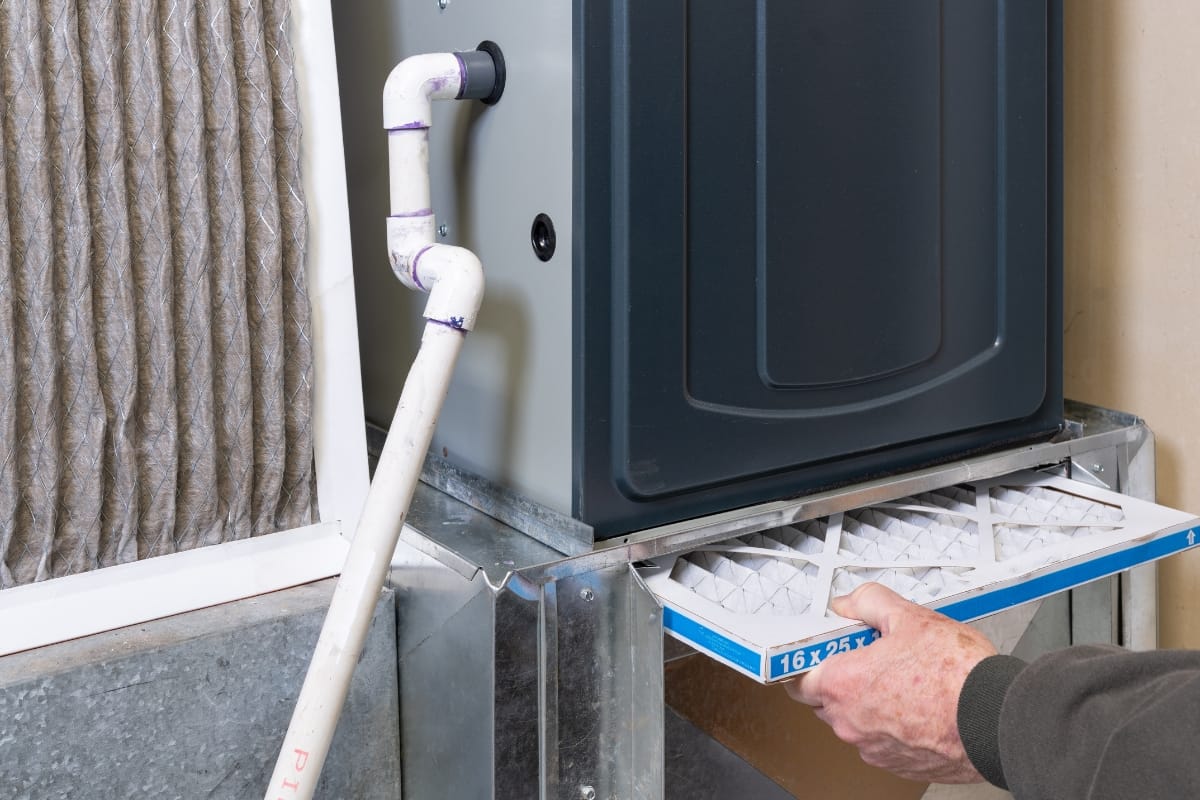
Frequent cycling on and off can indicate wear and tear on your heatpump. You might spot ice formation or frost on the outdoor unit, suggesting airflow issues.
An unresponsive or erratic thermostat could also disrupt your comfort, while refrigerant leaks may hint at bigger problems. Finally, ductwork complications can affect airflow, introducing dust and even altering your sense of smell. Knowing these signs can help keep your home comfortable.
Frequent Cycling on and Off
If your heatpump is frequently cycling on and off, it’s a sign that the machine might be experiencing wear or other issues. This constant switching can happen due to an unresponsive thermostat or an airflow problem.
When humidity levels change with the climate, a properly functioning heatpump should adjust smoothly, not rapidly turn on and off, which can waste energy and increase your bills.
Ignoring this cycling behavior can lead to bigger frustrations down the road. For instance, it may put more strain on your heatpump, ultimately reducing its lifespan.
Staying on top of this warning sign helps you catch any potential problems early, ensuring you can keep your home comfortable no matter what the weather throws your way.
Ice Formation or Frost on the Outdoor Unit
If you see ice or frost on the outdoor unit of your heatpump, it signals potential problems you can’t afford to ignore.
This formation often indicates airflow issues or low refrigerant levels, which can lead to decreased heating performance. If left unaddressed, these heatpump issues could escalate, and you may find yourself needing a costly replacement just as your warranty expires.
Unresponsive or Erratic Thermostat
If your thermostat is unresponsive or acting erratically, it’s a clear sign you may be facing some heatpump problems. This can lead to your heating system delivering cold air when you expect warmth, making your home uncomfortable.
To tackle these issues, consider checking the thermostat‘s batteries first; sometimes, it’s a simple fix. If that doesn’t solve it, it might be time to call an HVAC professional for a closer look at your heatpump.
An unresponsive thermostat can make it harder for your heatpump to maintain the correct temperature in your home. When this happens, your system works overtime, potentially leading to costly heatpump repairs down the line.
You can keep your system running smoothly by regularly monitoring the thermostat and ensuring it functions properly. If you find that adjustments aren’t having an effect, don’t hesitate to seek help from an expert to repair the heatpump efficiently:
- Check batteries in the thermostat
- Inspect the wiring connection
- Assess settings for accuracy
- Schedule a visit with an HVAC professional if necessary
Refrigerant Leaks Indicating a Problem
If you notice a refrigerantleak in your heatpump, it’s a problem you shouldn’t overlook. Low refrigerant levels can lead to a frozen heat pump, making it unable to effectively heat or cool your home.
Regular HVACmaintenance is essential, and keeping an eye out for signs of leaks can prevent more serious issues that could exponentially increase repair costs.
Refrigerant leaks can cause your system to work harder, which not only lowers its efficiency but also impacts your comfort.
If your heatpump is cycling more frequently or struggling to maintain a steady temperature, it might be a clue that you need to address this problem. Follow these tips to help maintain your heatpump:
- Regularly inspect for signs of refrigerant leaks.
- Schedule professional heatpumpmaintenance at least once a year.
- Pay attention to unusual noises or a drop in performance.
Ductwork Complications Affecting Airflow
Ductwork complications can seriously hinder your heating system’s performance. If you notice that some areas of your home are freezing while others are warm, it may be a sign of blockages or leaks in your ductwork.
Regular inspection can help identify these issues before they drive up your utility bills or lead to bigger problems.
Ice or snow buildup around your outdoor unit can also indicate that your ducts aren’t allowing sufficient airflow. This restriction forces your heating system to work harder, which can eventually shorten its lifespan.
Addressing ductwork concerns promptly not only improves comfort but also enhances efficiency, ensuring your home stays warm without breaking the bank.
Heat pumps can fail quietly, leaving you in the cold when you least expect it. To avoid this, regular inspections hold the key to keeping your home warm and comfortable.
Importance of Timely HeatPump Inspections
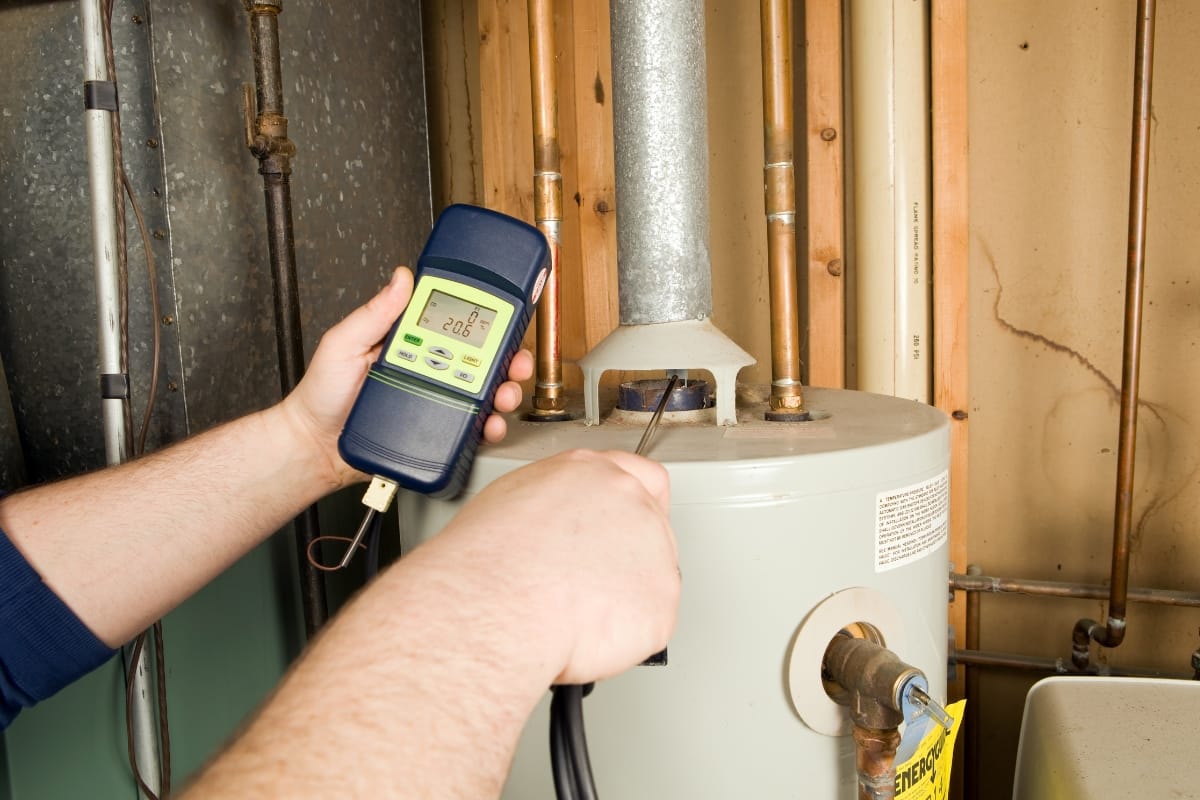
Early detection of heatpump issues can save you significant money on energyconsumption and prevent costly failures. Regular checkups with a qualified technician can help pinpoint problems before they escalate.
Learn when to schedule these essential inspections to keep your unit running smoothly, while also securing the comfort of your home without the stress of unexpected boiler repairs.
How Early Detection Can Save You Money
Addressing heatpump issues through early detection can save you a considerable amount of money in the long run.
For instance, if you notice a problem with the contactor or the sensor, getting it checked out right away can prevent more significant issues, like a pressure imbalance that could lead to a complete system failure. This proactive approach not only keeps your home comfortable but also shields your wallet from hefty repair bills down the road.
Regular inspections can help you catch potential problems, such as a power outage affecting your system’s performance. By identifying the root of recurring issues, you ensure your heatpump operates efficiently, minimizing not only energy costs but also the likelihood of costly repairs. Making sure everything is running smoothly gives you peace of mind and avoids unexpected expenses when the seasons change.
When to Schedule a Professional Checkup
It’s essential to schedule a professional checkup for your heatpump at least once a year, especially if you notice any dirt buildup or hear unusual sounds from the unit.
Regular maintenance helps identify issues like faulty wires or parts under stress before they become more significant problems. If you have a Traneheatpump, keeping it in top shape is crucial to ensure optimal efficiency and performance.
Pay attention to the timing of your checkups as well; consider scheduling them before the peak heating or cooling seasons. This proactive approach ensures your system is ready to handle workload demands without issues.
Staying ahead of potential problems not only guarantees comfort in your home, but it also helps avoid last-minute repairs that could disrupt your busy routine:
- Book checkups before summer and winter seasons.
- Inspect for dirt buildup and listen for unusual sounds.
- Address any system stress from wiring or components.
Keeping your heatpump running well is simpler than you think. Next, let’s look at straightforward maintenancetips that can save you from future trouble.
MaintenanceTips to Prevent HeatPump Problems
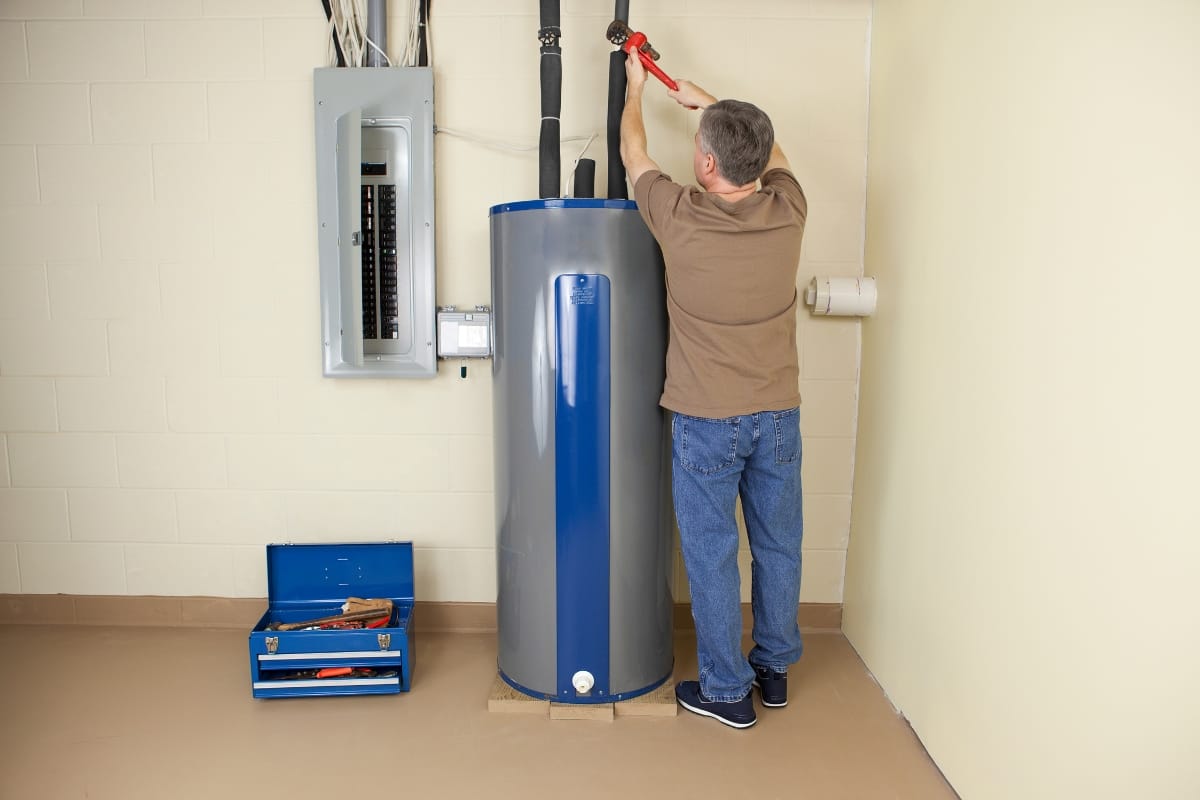
To keep your heatpump running smoothly and ensure its longevity, focus on a few essential maintenance practices. Regularly changing filters can boost performance and efficiency, while cleaning the outdoor unit promotes better airflow.
Additionally, sealing air leaks around ductwork enhances energy savings. Implementing these tips protects your investment and helps avoid future issues.
Regular Filter Changes for Optimal Performance
Changing your heatpump filters regularly is one of the simplest and most effective ways to ensure optimal performance.
Clogged filters restrict airflow, making your system work harder to heat or cool your home, which can lead to increased energy costs and unnecessary wear and tear. By checking and replacing the filters every one to three months, you keep your heatpump running smoothly and efficiently.
Additionally, clean filters help improve indoor air quality, which is especially important for families with allergy sufferers.
When your heatpump operates with clean filters, it can enhance airflow and maintain consistent temperatures throughout your home. Staying on top of filter changes not only keeps your system in top shape but also enhances your overall comfort and well-being.
Cleaning the Outdoor Unit to Ensure Efficiency
Cleaning your outdoor unit is a key step in maintaining the efficiency of your heatpump. Debris, leaves, and dirt can accumulate around the unit, blocking airflow, which strains the system and affects its performance.
By regularly checking and gently cleaning the outdoor unit, you can ensure that it operates effectively, helping to keep your home comfortable while reducing energy costs.
To clean the outdoor unit, start by turning off the power supply to prevent any accidents. Use a garden hose to rinse off any loose dirt and debris, being careful not to damage the fins. You might also want to trim any nearby plants or bushes that could obstruct airflow:
- Turn off the power to the unit.
- Rinse off dirt and debris with a garden hose.
- Trim back any plants that block airflow.
Sealing Air Leaks Around Ductwork
Sealing air leaks around your ductwork can significantly enhance your heatpump‘s efficiency. When warm or cool air escapes through gaps and cracks, your system has to work harder to maintain a comfortable temperature, leading to increased energy costs.
Take a moment to inspect your ducts, particularly in areas that are less accessible, like attics or crawl spaces. Using mastic sealant or foil tape can be a simple yet effective way to close off those leaks and boost your home’s overall comfort.
Pay attention to common areas where leaks often occur, such as joints and connections. If you notice drafts or inconsistencies in temperature from room to room, it’s time to take action.
Sealing these leaks not only reduces energy waste but also prolongs the life of your heatpump, keeps your home cozy, and ultimately saves you money on your utility bills. Regularly checking for leaks is a small effort that can lead to big rewards in comfort and efficiency.
Neglect can turn small issues into big problems. Stay alert to the signs; they tell a story you don’t want to ignore.
Understanding the Risks of Ignoring Warning Signs
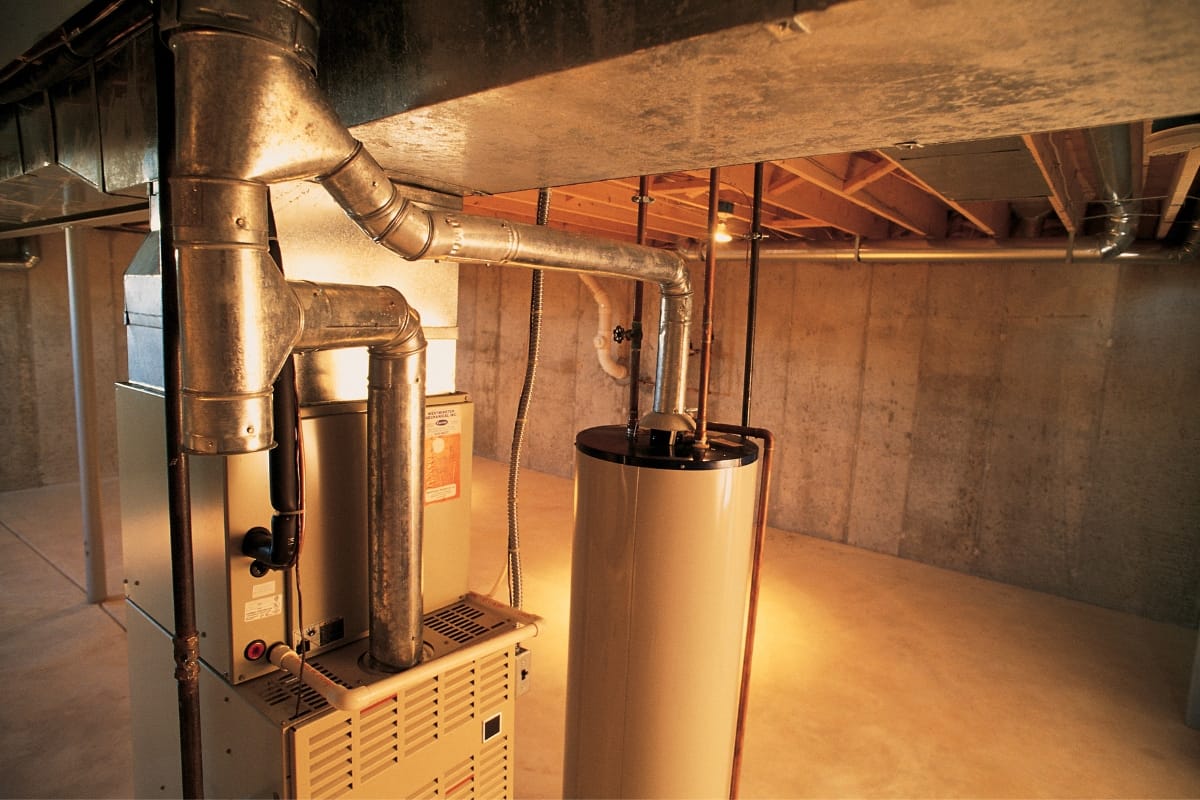
Delaying repairs on your heatpump can lead to serious damage, affecting both your home comfort and your wallet. Ignoring warning signs can disrupt your indoor environment, creating discomfort during extreme temperatures.
Plus, the longer you wait to address issues, the higher your long-term costs may rise due to inefficient operation and potential breakdowns. Addressing these problems promptly can save you money and maintain a cozy home.
Potential Damage From Delayed Repairs
Putting off repairs on your heatpump can lead to serious damage that ultimately affects your comfort and wallet.
For instance, a small refrigerantleak can snowball into a bigger problem, causing the entire system to break down. When components struggle due to neglect, they wear out faster, resulting in higher repair bills and an uncomfortable home environment.
Moreover, ignoring warning signs can lead to inefficiencies that drive up your energy costs. A heatpump that’s not functioning properly may consume more energy to maintain the desired temperature, impacting your monthly bills significantly.
Addressing issues as soon as they arise allows you to keep your system running smoothly and avoid unexpected expenses down the line:
| Risk | Potential Damage | Consequences |
|---|---|---|
| Refrigerant Leaks | System breakdown | Increased repair costs |
| Inefficiencies | Higher energy bills | Uncomfortable living space |
The Impact on Home Comfort Levels
Ignoring warning signs in your heatpump can significantly impact your home comfort levels. For instance, if your system isn’t heating or cooling efficiently, you might notice uncomfortable fluctuations in temperature throughout your home.
This lack of consistent comfort can make daily living more difficult, especially during extreme weather conditions.
Furthermore, when your heatpump isn’t functioning correctly, it can lead to increased humidity and poor air quality in your home. Higher humidity levels can create a stuffy atmosphere, making it feel worse on hot days, while dry air can lead to discomfort during winter.
Addressing heatpump issues promptly is key to maintaining a comfortable living space, as it will also help you save on energy costs in the long run:
- Maintaining a consistent temperature throughout your home.
- Ensuring good air quality for health and comfort.
- Reducing overall energy costs related to heating and cooling.
Long-Term Costs Associated With Neglected Issues
Neglecting heatpump issues can lead to significant long-term costs that add up over time. For instance, if you let a small refrigerantleak go unfixed, it can eventually cause your entire heatpump system to break down.
This could mean not only an unexpected repair bill but also the need for a complete heatpumpreplacement that could have been avoided with early action.
Additionally, ignoring warning signs creates inefficiencies that can drive your energy bills higher every month. When your heatpump is not operating at its best due to wear and tear, you might find yourself using more energy to maintain your desired indoor temperature.
Staying on top of these warning signs helps ensure your system runs efficiently, potentially saving you a significant amount of money in the long run:
| Warning Sign | Potential Long-Term Cost | Reason to Address |
|---|---|---|
| Refrigerant Leaks | Higher repair costs | Can lead to system breakdown |
| Inefficiencies | Increased energy bills | Drains your budget |
Ignoring warning signs can lead to bigger problems down the road. To keep your system running smoothly, it’s time to find the right HVAC professional for a thorough inspection.
Finding the Right HVAC Professional for Inspections
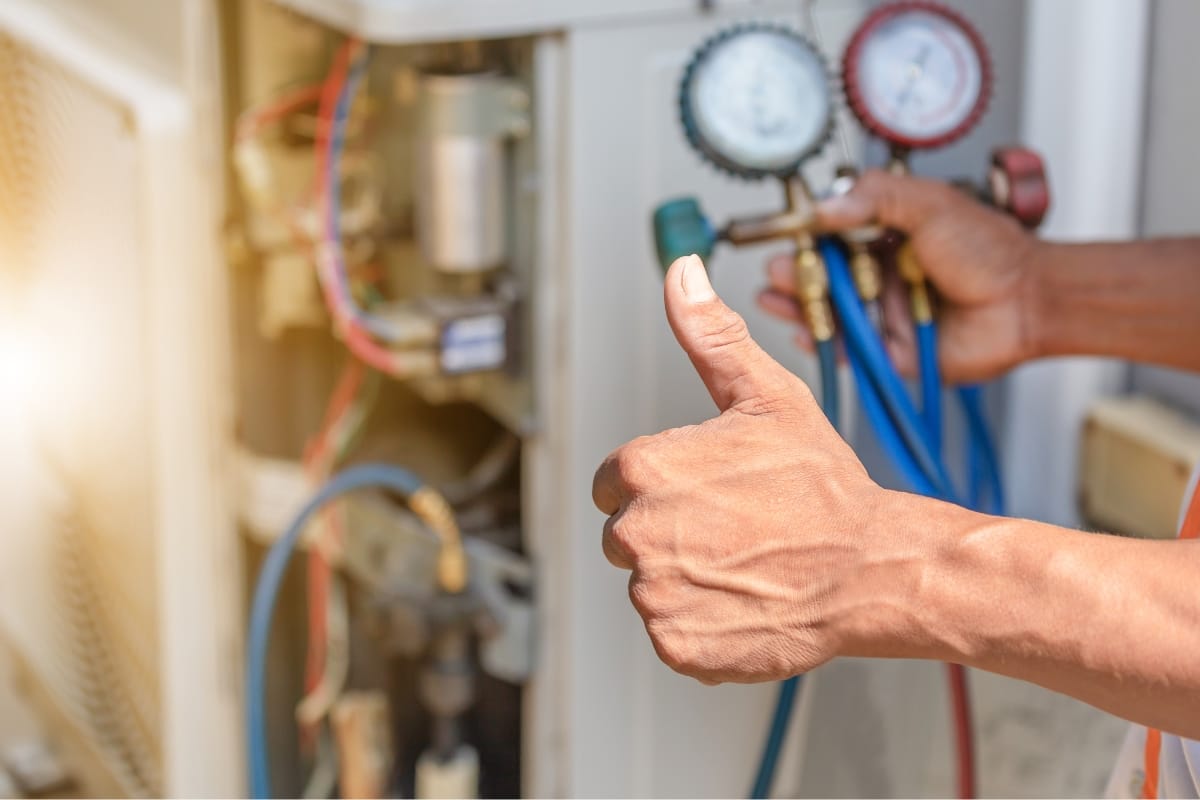
When it comes time to schedule inspections for your heatpump, knowing how to choose the right HVAC professional is key.
Start by asking the right questions when hiring a technician, as this can help you gauge their expertise. Don’t overlook the importance of reviews and recommendations from others, which can guide you toward trustworthy options.
Finally, consider the benefits of regular maintenance agreements to keep your system in top shape and avoid unexpected repairs down the road.
Questions to Ask When Hiring a Technician
When hiring a technician for your heatpumpinspection, it’s essential to ask about their experience with heatpump systems specifically. Inquire about their training and certifications to ensure they are qualified to handle your needs.
A knowledgeable technician can quickly identify warning signs and help you avoid further issues, saving you time and money down the road.
It’s also a good idea to ask for references or read reviews from previous customers. This can give you insight into their reputation and service quality. A reliable technician will be happy to share this information, as it shows confidence in their work and commitment to customer satisfaction.
Knowing you have an experienced professional working on your heatpump can provide peace of mind when addressing any warning signs you may notice.
Importance of Reviews and Recommendations
When searching for an HVAC professional, paying attention to reviews and recommendations can make a significant difference.
Positive feedback from previous clients gives you insight into the technician‘s reliability and expertise in managing heatpump issues. Think about how reassuring it is to choose someone backed by others’ experiences, especially when your comfort depends on it.
Don’t hesitate to ask around or check online platforms for ratings. A technician who has consistently high ratings for diagnosing and repairing heatpump problems can help you avoid potential headaches down the line.
Finding someone you can trust not only streamlines the process of addressing any warning signs in your system but also offers you peace of mind knowing that your home is in good hands.
Benefits of Regular Maintenance Agreements
Regular maintenance agreements come with plenty of perks for your heatpump. By signing up for one, you get scheduled checkups that help catch small issues before they turn into major headaches.
This proactive approach can save you a lot of time and money, keeping your system running smoothly and extending its lifespan.
Additionally, maintenance agreements often include priority service, meaning you won’t have to wait long for help when something goes wrong. Knowing you have a trustworthy HVAC professional looking after your system can give you peace of mind. You get to enjoy a comfortable home without the stress of unexpected issues popping up, making it a smart choice for any homeowner.
Frequently Asked Questions
What are the common warning signs of heatpump issues?
Common warning signs of heatpump issues include strange noises, fluctuating temperatures, reduced airflow, and increased energy bills. If you notice any of these symptoms, it might be time to call in a professional for an inspection.
How do I know if my heatpump needs inspection?
If your heatpump is making unusual noises, not heating or cooling effectively, or shows frequent cycling, it’s time for an inspection. Regular maintenance keeps your system running smoothly and efficiently, ensuring comfort for your home.
What maintenancetips can help prevent heatpump problems?
Regular maintenance of your heatpump includes changing filters, cleaning coils, and scheduling professional inspections. These steps help ensure efficiency and prevent costly breakdowns, keeping your heating and cooling systems running smoothly year-round.
What risks come from ignoring heatpump warning signs?
Ignoring heatpump warning signs can lead to costly repairs, decreased efficiency, and unsafe operating conditions. Over time, this neglect can result in system failure, higher energy bills, and potential damage to your home. Stay alert!
How can I choose the right HVAC professional for inspections?
To choose the right HVAC professional for inspections, ensure they are licensed, have solid reviews, and offer clear pricing. Verify their experience and ask for references to guarantee quality service tailored to your needs.
Conclusion
Don’t let heat pump issues compromise your comfort, especially when the signs are clear. At inAir Heating & Air, we specialize in diagnosing and resolving heat pump problems to keep your home cozy and efficient.
If you’ve noticed any of the warning signs, now is the time to act. Call us at (770) 233-7777 or visit our website to fill out our HVAC request form. Let us restore your system’s performance and ensure your peace of mind this season!




